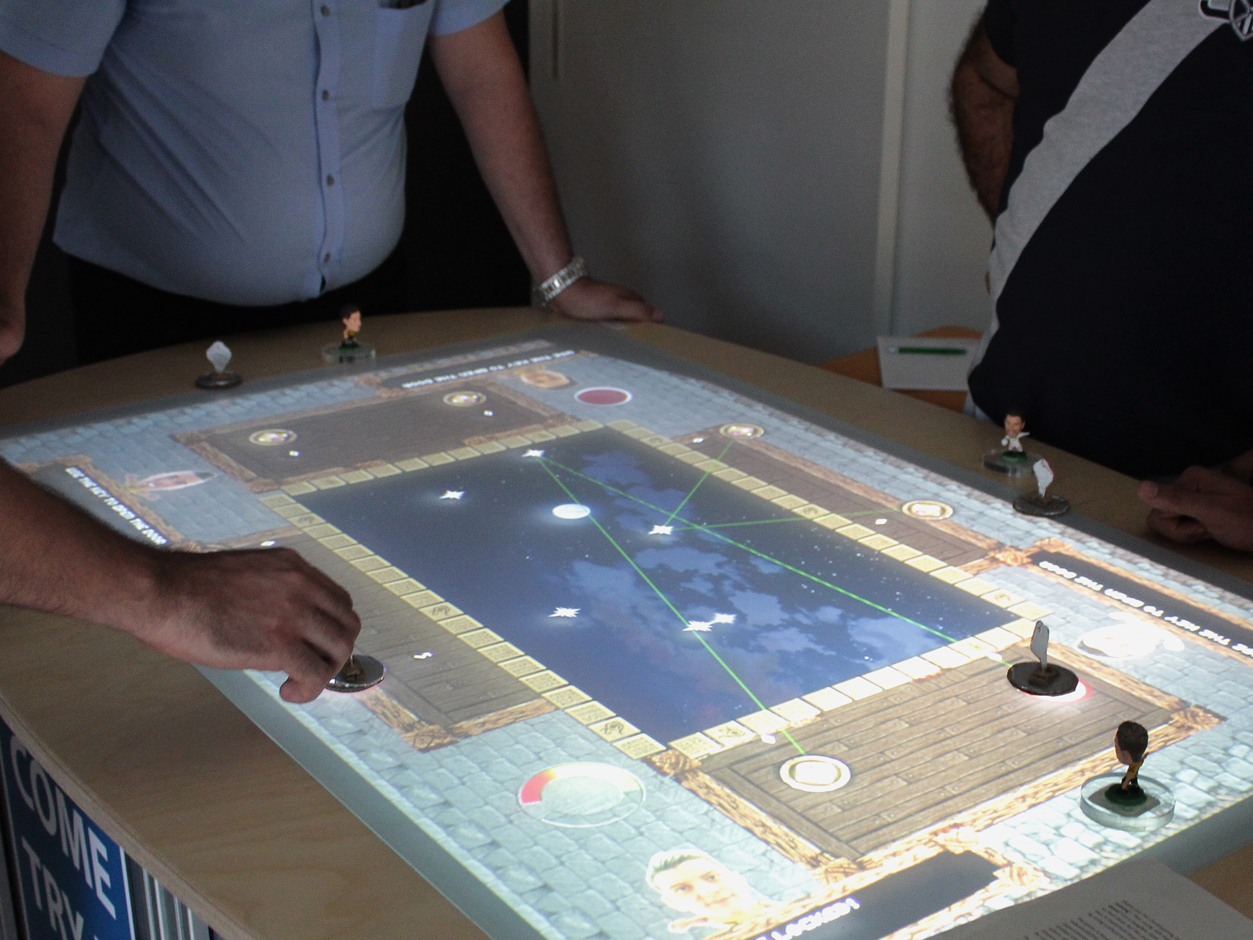ORBIT
Overcoming Breakdowns in Teams With Interactive Tabletops
Past project
Inspiration
People in Luxembourg and elsewhere live and interact in a world that is constantly transformed by an ever-increasing globalisation and other societal dynamics. The ensuing challenges can only be solved by a joint effort that relies on the resources of each participant. However, constructive collaboration on new challenges is a difficult matter and the mere joining of people’s forces does not help unless people know how to collaborate. Hence, learning to learn and to work together must become an important goal in education and professional training.
Shared interfaces such as multi-touch tables and tangible systems were shown to be highly beneficial for mediating and supporting collaboration. This is due to the large shared screen and the possibility for direct interaction by multiple users. However, to support learners in successfully developing collaboration skills, these need to be faced with situations where collaboration is not only afforded, but also challenged.
Innovation
The design research project ORBIT aims at implementing and studying a Joint Problem-Solving (JPS) activity mediated by a tangible tabletop interface (TTI) supporting adults in developing collaboration skills. This activity allows users to experience collaboration by jointly solving a problem and to cope with breaching moments (triggered by the computer) on the way to solve the problem.
The JPS activity is designed in five iterations of design, implementation, analysis and redesign, and put into practice during workshops in two different contexts: teacher education at the University of Luxembourg and professional training at the City of Luxembourg. The design process relies on user centered design methods (UCD) and on an ethnomethodological conversation analytic framework (EM/CA), combining them in a complementary way. More particularly, the EM/CA video analysis enables the in-depth study of the development and the enactment of participants’ multimodally embodied collaboration practices when they collaborate “smoothly” and when their collaborative experience is put to the test by emerging and unpredictable breaches generated by the TTI.
Located in an educational context at the interplay between technology and social action, ORBIT combines fundamental and applied research in a unique way. The Luxembourg Institute of Science and Technology (LIST) - thanks to its expertise in multimodal analytics and multi-user natural interaction - and the University of Luxembourg both contribute to developing the still young field of interdisciplinary research between computer and social sciences in Luxembourg.
Impact
At the end of the project a TTI-mediated JPS-activity of high usability supporting learning to collaborate will be designed. In this vein, a design guidelines to support the design of such activities will be developed and refined.
ORBIT will also contribute to the construction of a theoretical and methodological framework regarding the analysis of collaboration processes and methods to overcome breakdowns in a digitally mediated environment. It will indeed create collections of participants’ accounts of breakdowns, methods of overcoming breakdowns and methods of doing collaborative work.
Finally, ORBIT may have an important impact on society and education as the developed JPS-activity will continue to be implemented in teacher education and vocational training sessions after the project. In addition, its design can be adapted to be applied in other educational contexts and be expanded to learn content-related matters, such as physics, sustainable development or technology through collaboration. Furthermore, it may support the design of curricula and pedagogical methods that address the challenges of our complex modern society that can only be tackled by relying on 21st century skills (collaboration, problem solving, ICT-skills).
Research domains
- IT








